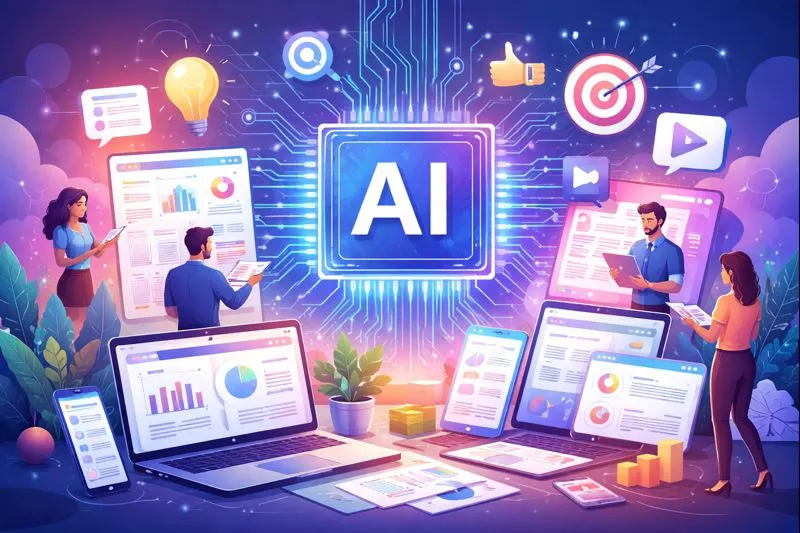How AI Has Totally Transformed Software Development
1. Faster Coding with AI Pair Programmers
AI coding assistants like GitHub Copilot and Tabnine have become every developer’s sidekick. Instead of writing boilerplate code from scratch, developers can now generate clean code suggestions in real time. This has drastically reduced development time and boosted productivity.
In fact, according to a McKinsey report, generative AI can automate up to 45% of coding tasks—freeing developers to focus on solving bigger problems.
2. Smarter Testing and Debugging
Testing used to be a painful bottleneck. But now, AI-driven tools such as Testim and Mabl automate regression testing, identify edge cases, and even generate test scripts on their own.
Bugs can also be spotted earlier thanks to AI-powered static analysis tools. Instead of waiting for QA teams, developers now get instant feedback inside their IDEs, improving both speed and code quality.
3. Natural Language to Code
A few years ago, the idea of describing software in plain English and watching it come to life sounded like science fiction. Today, platforms like OpenAI’s GPT models and Replit’s Ghostwriter make it possible.
This lowers the entry barrier for non-developers who want to experiment with building applications, accelerating innovation across industries through best custom software development.
4. AI in Project Management and DevOps
Beyond writing code, AI is also optimizing how teams manage projects. Tools like Jira’s AI assistant help auto-generate tasks, summarize tickets, and prioritize workloads.
In DevOps, AI is being used for predictive analytics—forecasting system failures, optimizing CI/CD pipelines, and reducing downtime. This shift makes software delivery faster, more reliable, and cost-effective.
5. A New Era of Creativity in Software
The biggest change isn’t just speed or efficiency—it’s creativity. Developers are no longer limited by repetitive tasks. With AI handling the heavy lifting, they can experiment with new architectures, innovative features, and smarter user experiences.
This is why many argue we’re entering the “augmented developer” era, where human creativity and AI capabilities merge.
Final Thoughts
AI hasn’t replaced developers—it has supercharged them. Software development today is not about just writing code, but about leveraging AI tools to deliver better solutions faster. Teams that embrace AI are finding themselves years ahead of competition in terms of innovation and efficiency.
The future of coding isn’t just human—it’s human + AI.



